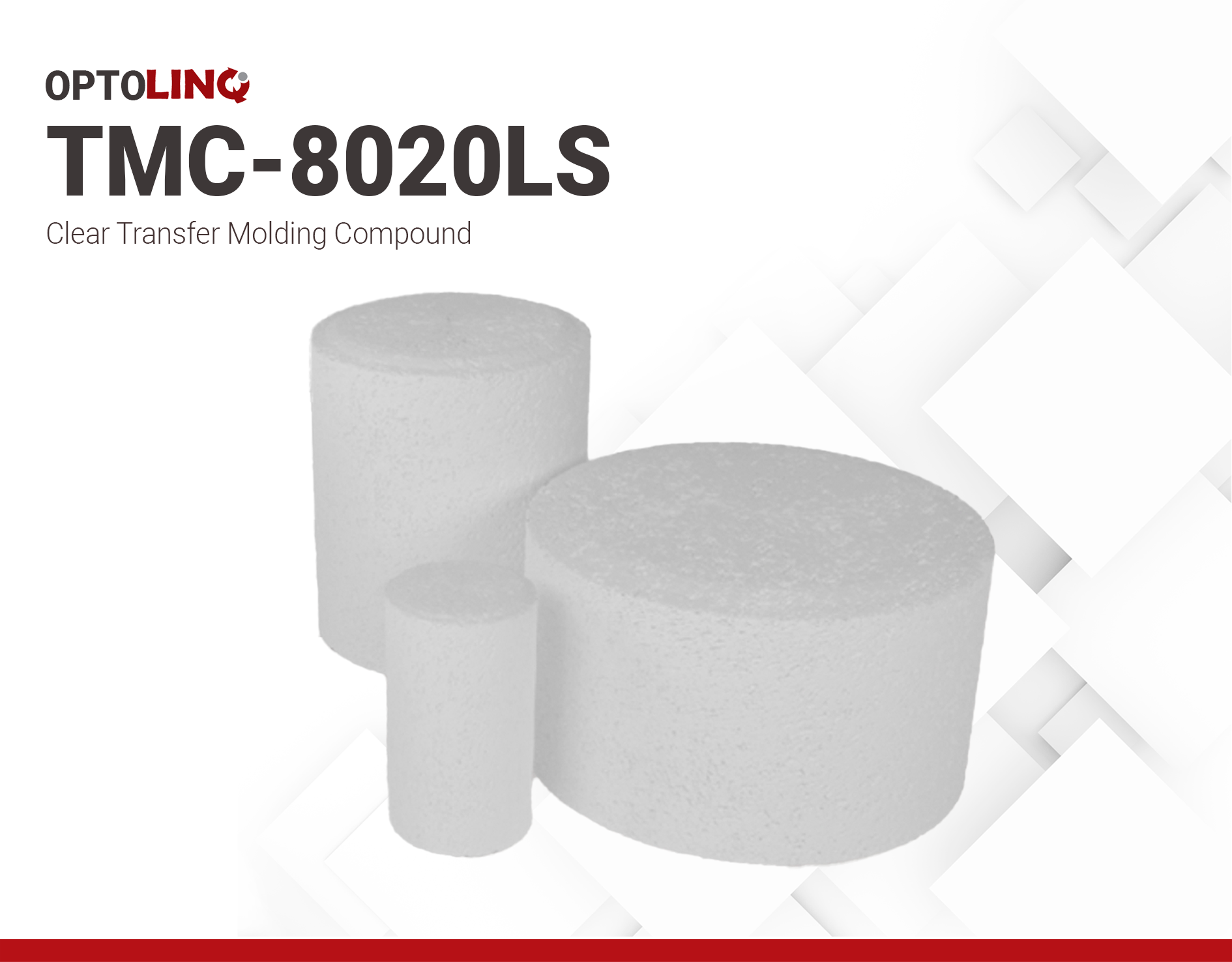TMC-8020LS | Clear Optical Molding Compound
- LED Encapsulation
- Low stress
- Better reflow and Thermal shock
Product Description
OPTOLINQ TMC-8020-LS is a high-performance optical solid epoxy specifically developed for LED encapsulation. This monocomponent epoxy achieves superior adhesion performance and great transmittance. It has lower Tg than the "normal" 8020 version.
OPTOLINQ TMC-8020-LS is able to offer low blue-ray decay for outdoor LED applications and overall great light performance. This low stress white epoxy is very close to competitive solutions such as XX814, XX1000 and XX97. It is a reliable product that has improved reflow abilities and thermal shock test performance.
Technical Specifications
| General Properties | |
| Appearance Appearance Appearance at room temperature. | Blue Tablet |
| Specific Gravity Specific Gravity Specific gravity (SG) is the ratio of the density of a substance to the density of a reference substance; equivalently, it is the ratio of the mass of a substance to the mass of a reference substance for the same given volume. For liquids, the reference substance is almost always water (1), while for gases, it is air (1.18) at room temperature. Specific gravity is unitless. | 1.2 |
| Thermal Properties | |
| Glass Transition Temperature (Tg) Glass Transition Temperature (Tg) The glass transition temperature for organic adhesives is a temperature region where the polymers change from glassy and brittle to soft and rubbery. Increasing the temperature further continues the softening process as the viscosity drops too. Temperatures between the glass transition temperature and below the decomposition point of the adhesive are the best region for bonding. The glass-transition temperature Tg of a material characterizes the range of temperatures over which this glass transition occurs. | 95 °C |
| Chemical Properties | |
| Water Absorption | 0.17 % |
| Curing Conditions | |
| Transfer Pressure | 10 - 40 kg/cm2 |
| Transfer Time | 20 - 50 s |
| Physical Properties | |
| Spiral Flow @ 175°C | 150 - 250 cm |
Additional Information
| PROPERTY | UNIT | TMC-8020L | TMC-8020LS |
| Viscosity | cP | 300 | 200 |
| Spiral Flow @150°C | cm | 150-250 | 150-250 |
| Hot Plate Gel Time @150°C | sec | 25-50 | 20-50 |
| Glass Transition Temperature | °C | 115 | 95 |
CTE by TMA, α1 CTE by TMA, α2 | ppm ppm | 70 170 | 70 220 |
Moisture Absorption PCT 24 hrs @25°C water 24 hrs @121°C, 2atm, 100%RH |
wt% wt% |
0.16 3.2 |
0.17 3.8 |
Flexural Strength @25°C Flexural Modulus @25°C | MPa Mpa | 130 2900 | 110 3100 |
yellowing Δb - 4 hrs @200°C yellowing Δb - 30 min @280°C yellowing Δb - 4 hrs UV | - | 8 42 16.5 | 25 45 16.5 |
| Transmittance 1mm @450nm | % | >90 | >90 |
| Refractive Index @633nm | - | 1.56 | 1.56 |
| Comment | Low stress version for better reflow performance | Low stress for balanced reflow and thermal shock test performance |



